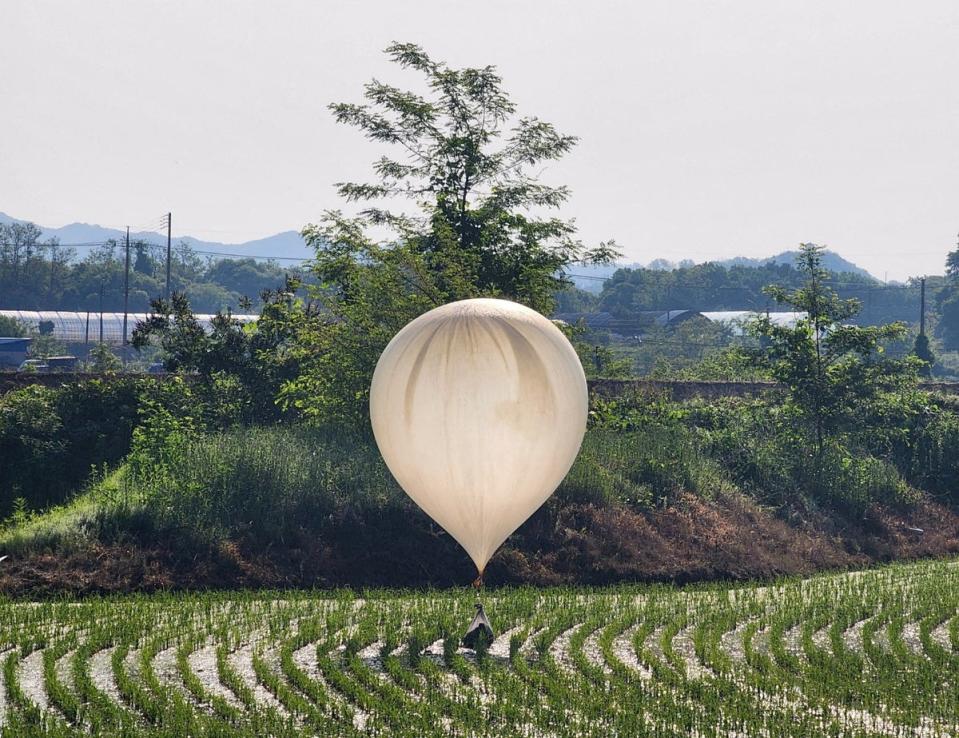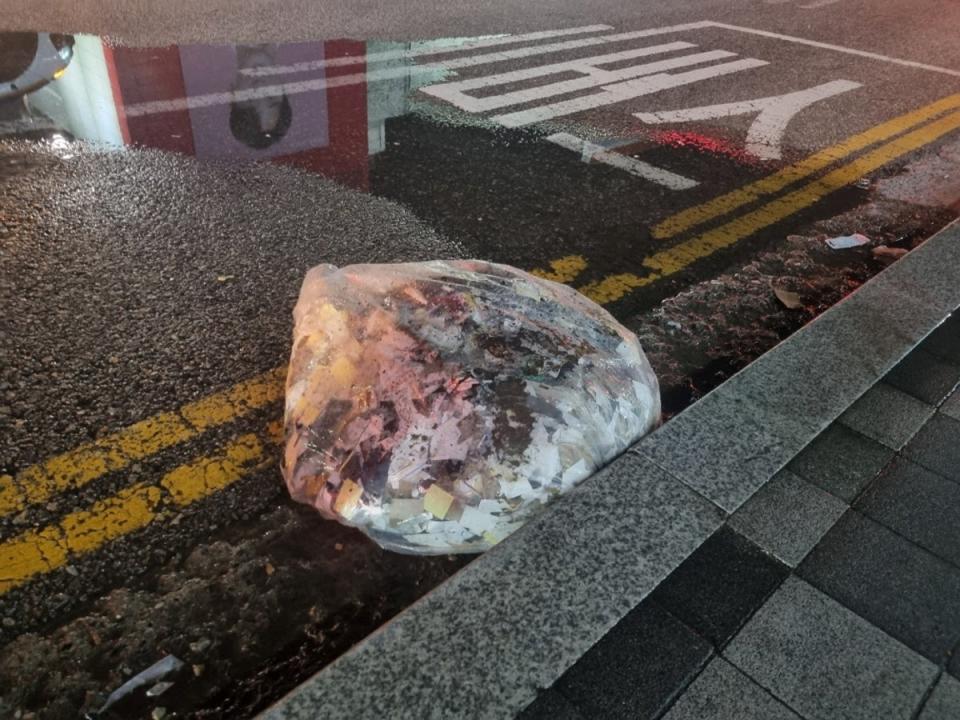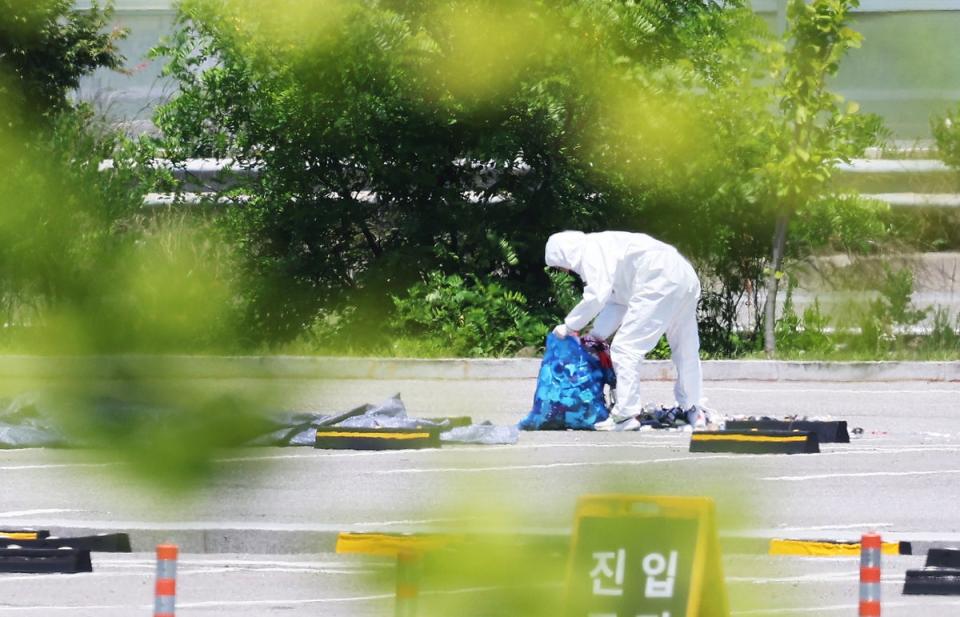North Korea sends 600 balloons carrying rubbish into South Korea: ‘Dirty provocations’
North Korea launched about 600 rubbish-filled balloons towards its southern neighbour on Saturday night, hitting South Korea with payloads of cigarette butts, scraps of cloth, waste paper and vinyl.
It follows a similar campaign a few days earlier, meaning that since last Tuesday, the North has sent over a total of around 800 trash balloons, spreading rubbish across the South Korean capital Seoul.
The office of South Korea’s president Yoon Suk-yeol called the balloons “dirty provocations no normal country would think of”, and vowed that his country would take retaliatory “steps that North Korea would find unbearable”.
South Korea’s joint chiefs of staff issued a statement saying the military was monitoring the starting point the balloons were being launched from, and conducting aerial reconnaissance to track down and collect them.
It also advised people to beware of falling objects, not to touch objects suspected to be from North Korea, and to report them to military or police offices instead. So far, there have been no reports of injuries or damage and the authorities have not found anything “hazardous” in the rubbish bags suspended below the balloons.
In Seoul, the city government sent text alerts saying that unidentified objects suspected to have been flown from North Korea had been detected in skies near the city and that the military was responding to them.

The North’s balloon launches add to a series of provocative actions recently, including a failed attempt to launch a second spy satellite and a barrage of short-range missile launches that the North said was intended to demonstrate its ability to attack the South pre-emptively.

On Wednesday, Kim Yo-jong, the powerful sister of North Korean leader Kim Jong-un, issued a statement confirming that the North had sent the balloons to make good on her country’s recent threat to “scatter mounds of wastepaper and filth” in South Korea in response to leafleting campaigns by South Korean activists.
She hinted that balloons could become the North’s standard response to leafletting, saying they would be “scattering rubbish dozens of times more than those being scattered to us”.
South Korea’s unification ministry said on Friday that North Korea must stop the provocations– including its missile launches and other acts – or face unspecified “unbearable” consequences.

South Korea’s defence minister Shin Won-sik said during a meeting with US defence secretary Lloyd Austin on the sidelines of the Shangri-La security dialogue in Singapore on Sunday that the balloons violated the armistice agreement, according to South Korea’s military.
The two reaffirmed a coordinated response to any North Korean threats and provocations based on the South Korea-US alliance’s combined defence posture, it added.
South Korea’s National Security Council standing committee will meet on Sunday afternoon to discuss whether to resume blasting loudspeakers at North Korea in response to the trash balloons, Yonhap news agency reported, citing the presidential office.
South Korea stopped blaring propaganda across the border in 2018 after a rare summit with Mr Kim.
Additional reporting by agencies


